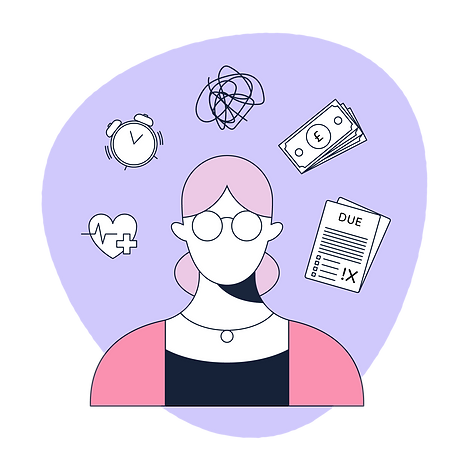Anxiety Disorders
Occasional anxiety is a normal part of life. You may be anxious about sitting an exam, worried about a presentation at work or before making important life decisions. During times like these feeling anxious can be perfectly normal.
Anxiety disorders are different though. For people who have one, worry and fear are constant and overwhelming and can interfere with daily activities like job performance, school/university and relationships. With treatment, anxiety disorders can be overcome and people can get back to living a fulfilling life.
Cognitive Behavioural Hypnotherapy & Mindfulness-Based Therapies
Cognitive Behavioural Hypnotherapy and Mindfulness-Based Therapies are incredibly effective at treating anxiety disorders. I use a variety of evidence-based treatments to help clients reduce and manage their levels of anxiety across the following types of disorders:
Generalised anxiety
Phobias
Panic attacks
Social anxiety
Performance anxiety
As the symptoms of anxiety can vary considerably treatment plans are always tailored specifically to an individual’s needs.
There are different types of anxiety disorders

Generalised Anxiety Disorder (GAD)
Generalised Anxiety Disorder is a long-term condition that causes anxiety about a wide range of situations and issues, rather than one specific event. People with GAD feel anxious most days and often struggle to remember the last time they felt relaxed.
Feeling restless, worried or on edge
Difficulty concentrating or sleeping
Dizziness or heart palpitations
Social Anxiety Disorder
Social anxiety means you experience extreme fear or anxiety triggered by social situations, such as parties, workplaces, when meeting new people or starting conversations. You may worry about doing something you think is embarrassing such as blushing, sweating.
Feeling sick, sweating or trembling
Heart palpitations
Panic attacks


Panic Attacks
Panic Attacks are when your body experiences a rush of intense mental and physical symptoms. It can come on very quickly and for no apparent reason and although they are not dangerous they can be very frightening and distressing.
Feeling faint or nauseous
A racing heartbeat
Shortness of breath
Performance Anxiety
If you dread the thought of getting up in front of a group of people and performing you are not alone. Millions of people suffer from performance anxiety, commonly called ‘stage fright’. Athletes, musicians, actors and public speakers often get performance anxiety.
Racing pulse & rapid breathing
Dry mouth & tight throat
Trembling hands, knees, lips & voice


Phobias
Phobias are a type of anxiety disorder. Specific phobias centre around a particular object, animal, situation or activity. They are often developed during childhood or adolescence and may become less severe as you get older. Almost all phobias can be treated and cured.
Animal phobias – such as dogs, spiders or snakes
Environmental phobias – such as heights, deep water and germs
Situational phobias – such as visiting the dentist, flying or confined spaces
Bodily phobias – such as blood, vomit or having injections

